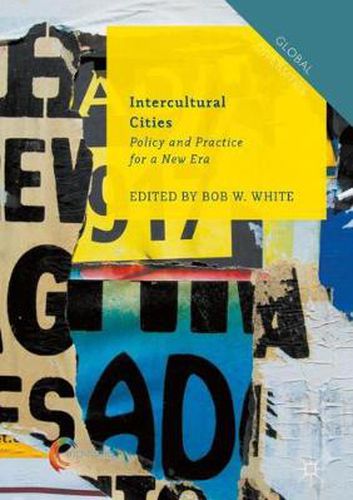Readings Newsletter
Become a Readings Member to make your shopping experience even easier.
Sign in or sign up for free!
You’re not far away from qualifying for FREE standard shipping within Australia
You’ve qualified for FREE standard shipping within Australia
The cart is loading…






This title is printed to order. This book may have been self-published. If so, we cannot guarantee the quality of the content. In the main most books will have gone through the editing process however some may not. We therefore suggest that you be aware of this before ordering this book. If in doubt check either the author or publisher’s details as we are unable to accept any returns unless they are faulty. Please contact us if you have any questions.
This book sets out to explore the political and social potential of intercultural policy for cities by bringing together advances in the areas of urban planning and intercultural theory. In recent years, demographic changes in cities in many parts of the world have led to increasing concerns about inter-ethnic tensions, social inequality, and racial discrimination. By virtue of their intermediate status, cities are in a particularly good position to design policy and programs that contribute to the well-being of all citizens, regardless of their origins. Certain cities have made significant advances in this domain, but until now very little work has been done to understand the specificity of work in the area of intercultural policy frameworks. The overall goal of this volume is to facilitate conversations between researchers and practitioners in their efforts to make cities more inclusive. This volume is the result of a series of on-going collaborations between academics and practitioners and it includes a number of original case studies that explain the evolution of intercultural policy from the point of view local actors. This collection will be of interest especially to policymakers and urban planners, but also to scholars and students in the areas of urban studies, public policy, anthropology, sociology, globalization and social sciences more generally. By leveraging recent advances in the field of intercultural policy and practice, this volume sheds light on the conditions and strategies that make intercultural cities a part of a common future.
$9.00 standard shipping within Australia
FREE standard shipping within Australia for orders over $100.00
Express & International shipping calculated at checkout
This title is printed to order. This book may have been self-published. If so, we cannot guarantee the quality of the content. In the main most books will have gone through the editing process however some may not. We therefore suggest that you be aware of this before ordering this book. If in doubt check either the author or publisher’s details as we are unable to accept any returns unless they are faulty. Please contact us if you have any questions.
This book sets out to explore the political and social potential of intercultural policy for cities by bringing together advances in the areas of urban planning and intercultural theory. In recent years, demographic changes in cities in many parts of the world have led to increasing concerns about inter-ethnic tensions, social inequality, and racial discrimination. By virtue of their intermediate status, cities are in a particularly good position to design policy and programs that contribute to the well-being of all citizens, regardless of their origins. Certain cities have made significant advances in this domain, but until now very little work has been done to understand the specificity of work in the area of intercultural policy frameworks. The overall goal of this volume is to facilitate conversations between researchers and practitioners in their efforts to make cities more inclusive. This volume is the result of a series of on-going collaborations between academics and practitioners and it includes a number of original case studies that explain the evolution of intercultural policy from the point of view local actors. This collection will be of interest especially to policymakers and urban planners, but also to scholars and students in the areas of urban studies, public policy, anthropology, sociology, globalization and social sciences more generally. By leveraging recent advances in the field of intercultural policy and practice, this volume sheds light on the conditions and strategies that make intercultural cities a part of a common future.